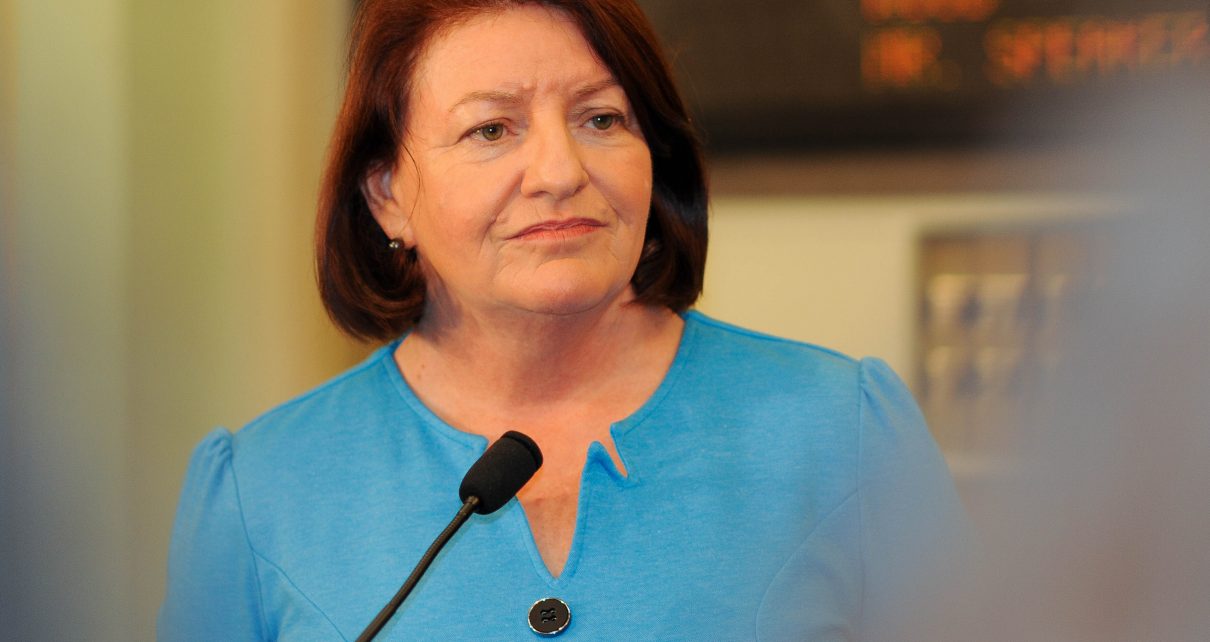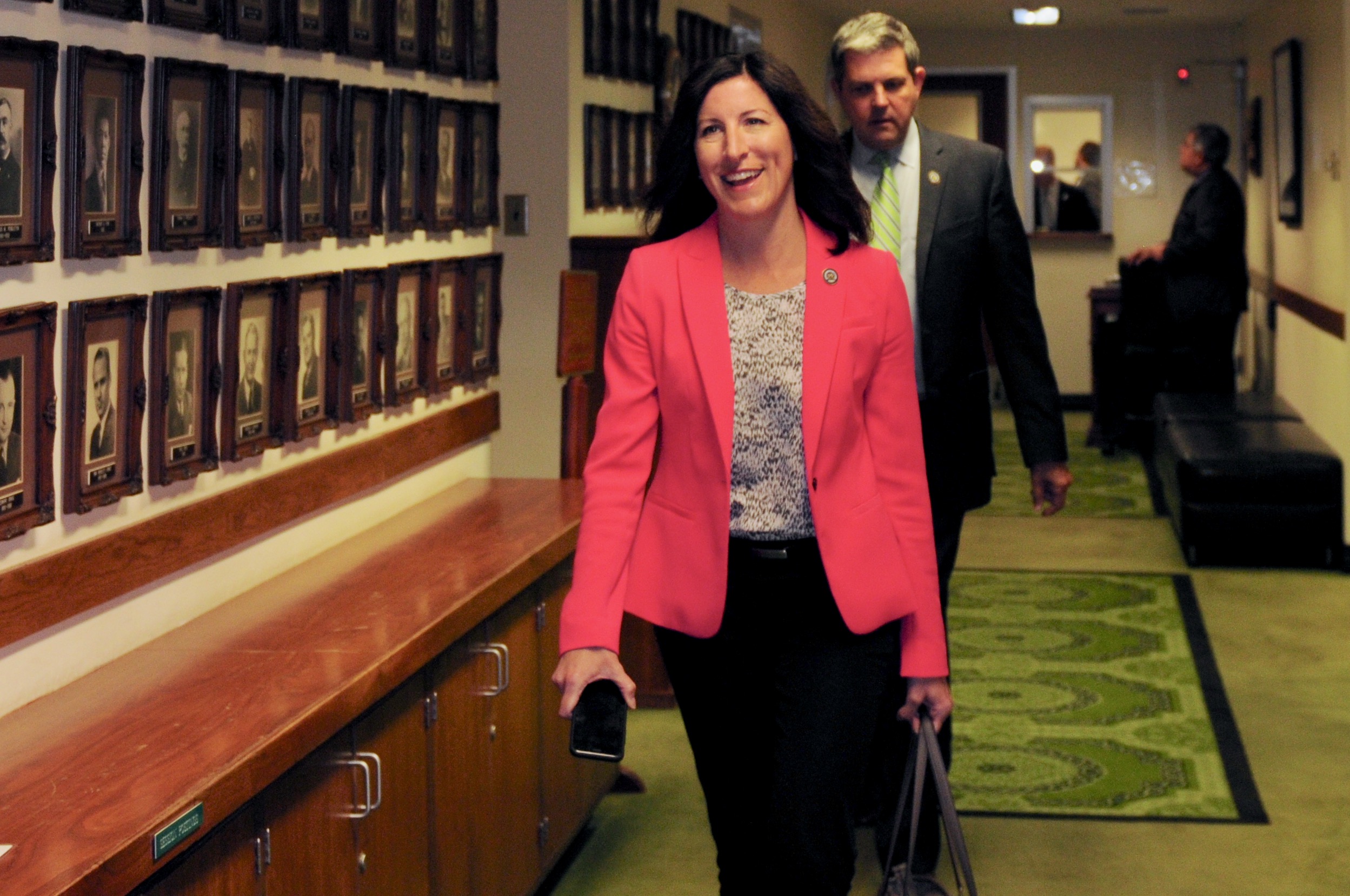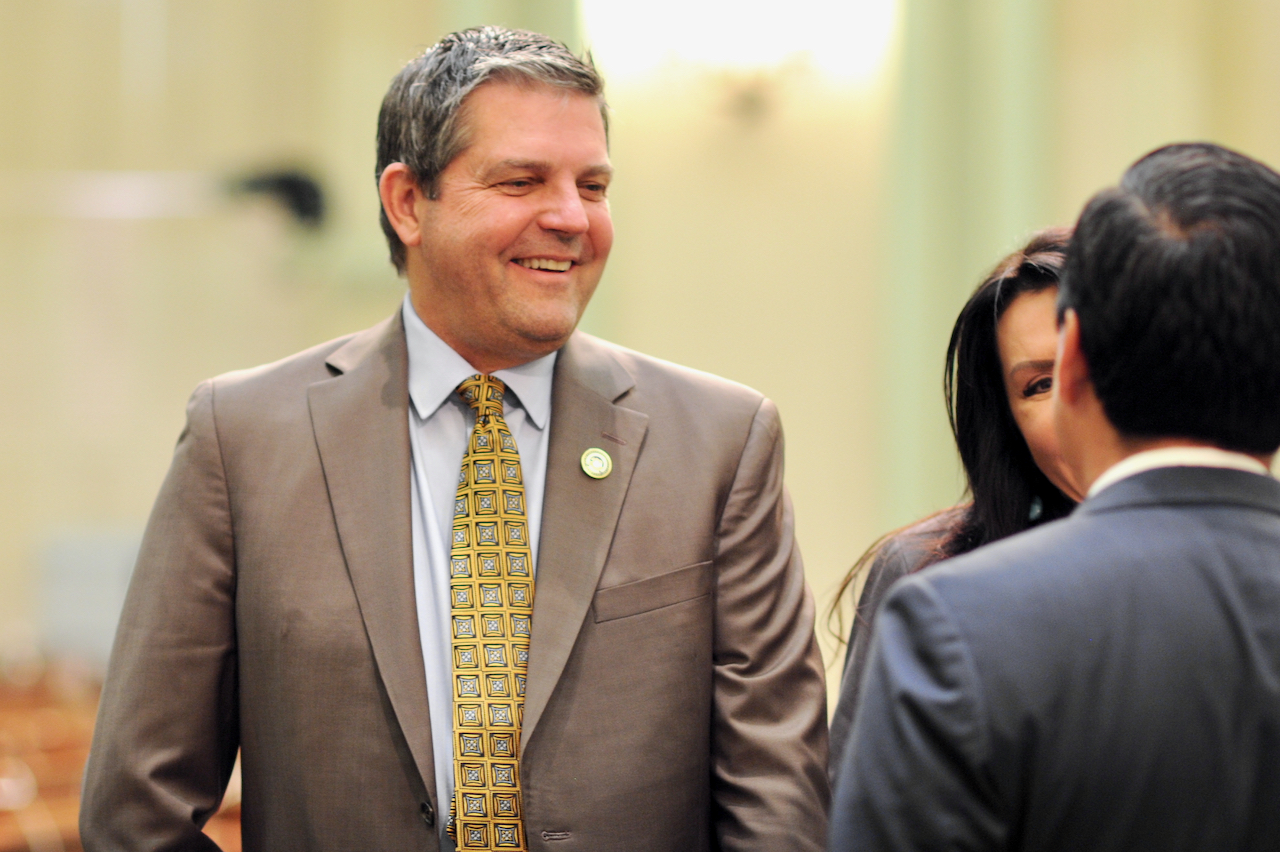
Senator Toni G. Atkins. (Photo: Kevin Sanders for California Globe)
Newly Signed Law to Expand Statewide Recycling Rebate Program Loaded With Pork
‘The amended bill added $400 millions in grants ‘for major corporations that don’t need it’
By Evan Symon, September 28, 2022 4:41 pm
Gov. Gavin Newsom signed a new bill into law on Tuesday that adds both wine and liquor containers to the statewide deposit and redemption program under the Department of Resources Recycling and Recovery.
Senate Bill 1013, authored by Senator Toni Atkins (D-San Diego) would specifically add distilled spirits and wine to the list of beverage types under the statewide redemption program beginning in January 2024. In addition to glass and aluminum containers, SB 1013 will also add a redemption payment and refund value of 25 cents to boxes, bladders, pouches, and similar containers containing wine or distilled spirits. Any plastic containers would have another 2 years to comply with the act’s postconsumer recycled plastic content requirements. The program itself will also get another $5 million annually to expend for quality incentive payments for empty glass beverage containers, going from $10 million in total to $15 million, due to the projected increase in recycled containers.
Additionally, SB 1013 will add numerous funds and grants in market incentives and programs, totaling to about $400 million over the next five years. This includes $4 million annually for the Recycled Glass Processing Incentive Grant Program that expands the glass cullet process in California, $1 million annually for the Empty Glass Beverage Transportation Grant Program to transport containers by rail, $60 million annually in payments to glass container manufacturers who purchase recycled glass, and $10 million annually in grants for litter reduction and recycling programs at the local level.
Fines for redemption program violations will go up from $1,000 to $5,000, with intentional or negligent violation fines doubling from $5,000 to $10,000.
Atkins authored SB 1013 largely to expand the recycling program to add wine and spirit containers as the first major expansion of the redemption law since 1986. Throughout most of the year, Atkins’ bill received very little pushback, even receiving bipartisan support.
SB 1013 signed despite controversial amendments
However, a week before the critical Senate and Assembly votes, major amendments were added to the bill to get retailers and manufacturers more on board. The over $400 million in market incentives and programs were added while the $100 daily fee for retailers who refused to accept returned containers was scrapped. Overnight, opposition against the bill became strong with many organizations withdrawing support, despite Atkins and others still praising the bill.
“Stealing money from consumers will come at the expense of the program that could be bankrupted in a matter of a few years,” said Consumer Watchdog last month following the amendments. “This money would be better spent developing greater points of access for consumers and more redemption opportunities. The fact that this bill was written behind closed doors and put in print when there was no time for amendment speaks volumes about its intent. The amended bill is loaded with pork for major corporations that don’t need it.”
Cheri Conner, a recycling advocate who helps organize recycling drives in Southern California, also noted that “No one is against recycling or adding more types of containers to the program. On the contrary, we’ve been asking for this to decades. But they added hundreds of millions of grants for these companies. They’re making it so that less places will redeem these containers. We wanted this passed, but not at the expense of Californians. This was kind of an evil thing to do on Atkins’ part.”
Despite this, the amendments did little to change legislative support, with the bill passing the Senate 38-0 and the Assembly 78-0 on August 31st. Attempts to dissuade Governor Newsom from signing the bill also failed, leading it to be signed into law on Tuesday.
“California’s bottle bill recycling program has needed fixing for 40 years,” explained Senator Atkins in a statement on Tuesday. “With SB 1013 we are finally able to include wine and distilled spirit bottles in the program—and when you consider that California generates more than one billion wine and liquor bottles every year, that shows what major progress this legislation is and what an impact it will have. I want to commend the wine industry, distilled spirits industry, environmental advocates, and other groups who worked to improve SB 1013, and I thank the large bipartisan majorities in both houses who voted for it.”
- Bill to Require Law Enforcement Disclosure if AI Was Used To Help Write Reports - August 7, 2025
- Gov. Newsom Files FOIA Request To ‘Expose True Cost’ Of L.A. Federal Troop Deployment for Anti-ICE Riots - August 6, 2025
- California Redistricting: How Newsom’s Plan Will Demolish Hard Fought GOP Gains - August 6, 2025





QOUTE: add a redemption payment and refund value of 25 cents to boxes, bladders, pouches, and similar containers containing wine or distilled spirits.
It will be an added TAX for every purchase in the same. They figure not everyone recycles so a definite surplus tax stream
More green Mafia
Nothing but another tax. The closest redemption center I know of, and we are not that rural, is about 12 miles away and only allows one type of materiel per day. What a farce and waste of over a gallon of gas getting it there. Do away with deposit fees. Many would rather not pay them and just put in recycle bin. Definate pork.
So Democrat Gov. Gavin Newsom signed a new bill into law authored by Democrat Senator Toni Atkins on Tuesday that adds both wine and liquor containers to the statewide deposit and redemption program under the Department of Resources Recycling and Recovery? Has there been an audit done of what happens to the taxes collected under the statewide deposit and redemption program? No doubt the taxes collected are unaccounted for and simply flowing into the general fund to be squander by Democrats who control the legislature?
They never talk about where this stuff goes. AFAIK, it all winds up in the land fill because there is no market for it.
Why not cut to the chase and let the homeless sort thought it – the Keifer dump is one big happy trash can!